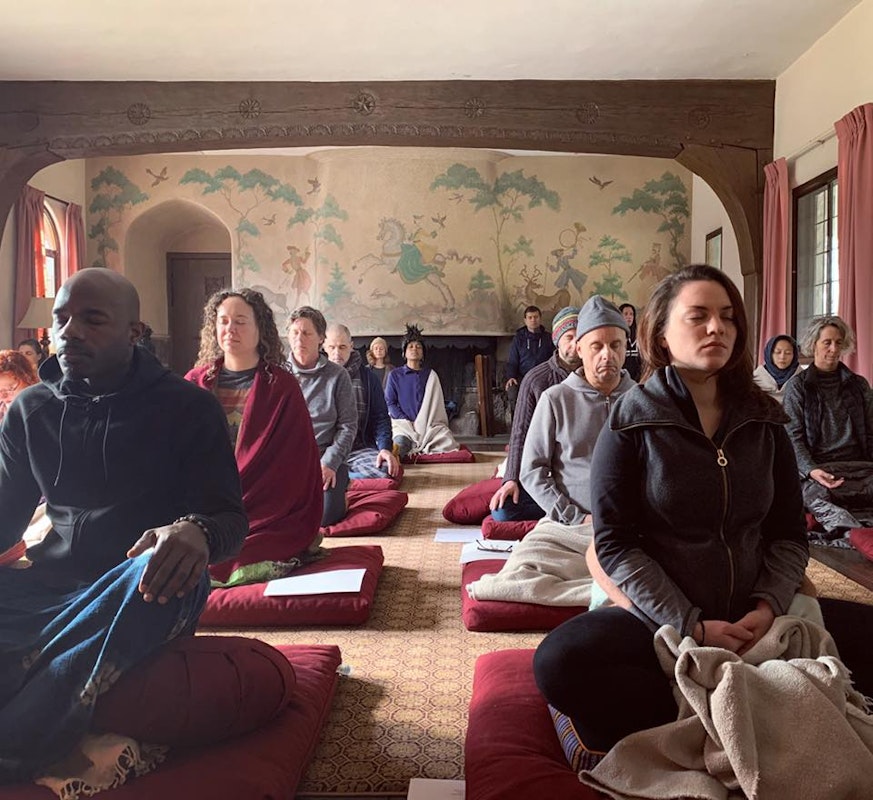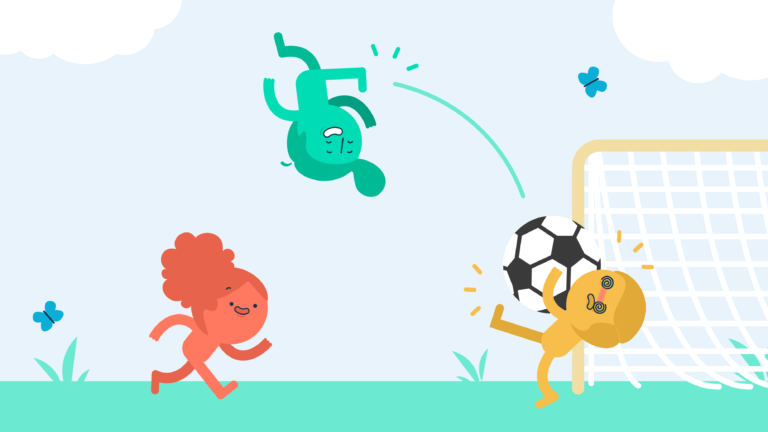The Construction of Mindfulness: The Meaning at the Margins
Product Details
Name: Mindfulness.
Purpose: Providing peace of mind, grounding, and centring.
When you tune in to the world around you and the various narratives it’s trying to sell you; you can hear the endless talk of mindfulness all over the place. People are promoting mindful eating as a strong response to toxic diet culture, mindful travelling against environmental impacts, and mindful resting in the face of jittery restfulness.
As far as I can tell, mindfulness is a reactionary feature that aims to balance out negative effects from various sources. Yes, let’s stick with that for a while. In this case, you are the object of well-aimed flak coming from the world. University, work, exams, toxic relationships, and just plain old bad days can add up the stress in your life. Add some old and reliable busy scheduling, questionable content we consume on social media, and endless to-do lists, and there you have it: one busy life with not a single moment to connect with yourself.
Practising mindfulness acts as a shield against the imbalance of power, i.e. you against the horde of circumstances and implications. Being mindful means learning to be conscious of yourself and what you’re feeling and perceiving around you. In other words, it means being present in the moment.
How often are you fully aware of yourself? When we do heavy exercise, we tend to be aware of our body’s needs – muscle burn and increased heart rate. Similarly, meditation and yoga allow you to focus on yourself and your own mind. But my question stands: how often and for how long are you centred?
How Mindfulness Changes the Brain
Materials: Self-awareness, consciousness, time, patience.
Mindfulness, in its pure form, is rooted in Buddhism. It’s about taking time to think whichever thoughts and feel whichever feelings you need to, focusing on them and acknowledging them without judgement or self-censorship. Now that last part is a bit of a challenge. We are groomed from the earliest age to behave in certain ways and are often fed toxic beliefs, such as when or where we’re supposed to have certain emotions. You know how protagonists in movies usually have a meltdown in their bathroom or bedroom, sliding dramatically down the wall and covering their eyes? Yeah, no. This is what the media tells you your emotions should look like, and especially to which spaces they are confined.
Mindfulness is, in itself, an exercise against those conditioned beliefs. You’re allowed to take stock of and express any emotions you need to without having to justify, hide, or downplay them. Sometimes being in the moment includes being in the full-on meltdown session as you will feel better afterwards.
Now, let’s not go overboard with these worst-case scenarios; mindfulness is about any thoughts, emotions, perceptions, and observations you may have about the world around you. As such, it has many benefits:
- Mindfulness boosts concentration. When you allow yourself the time to listen to your mind when you need to, you get less distracted when doing other things. According to a study conducted at the University of the Sunshine Coast, Australia, mindfulness exercises change brain physiology long-term, promoting better focus and increased attention span.
- It helps decrease depression. Mindfulness-based cognitive therapy combines cognitive-behavioural therapy and mindfulness-based stress reduction to achieve an overall improvement in brain chemistry and a decrease in the symptoms of depression. Given that the whole program lasts only eight weeks, it’s safe to assume it’s very effective and helps patients cope with their illness.
- It helps regulate emotions. If there is one thing I will agree on, it’s that throwing fits and tantrums should be regulated from the earliest age. We’ve all witnessed toddlers rolling on the floor and screaming in supermarkets, but imagine a grown-up doing the same – uh, red flag alert! Still, sometimes we just see red because life is a pigeon waiting to drop something on your head. Practising mindfulness helps us regulate our emotions by acknowledging and verbalising them. The key to keeping yourself in check, especially when angry, is to be able to describe those emotions without starting a shouting match. This, in turn, will positively affect your overall well-being and relationships.
- Cognitive improvements. With better focus and a greater attention span, you get a chance to engage in hobbies that stimulate your brain. But more importantly, practising mindfulness helps you assess your emotions without judging them, increasing your cognitive flexibility. In other words, you can think outside the box when facing a problem. Being able to shift your emotions and thoughts to a time when it’s convenient to address them also allows for sustained attention.
- It reduces stress. We’ve been talking about stress so much around here, and I’m sure that you know it negatively impacts your physical and mental health. Incorporating mindfulness exercises into your daily routine, be it in the morning or evening, will help you reduce your overall stress level in the long run. Now that’s a deal I wouldn’t want to pass on.

Hang On! Mindfulness-Based Stress Reduction?
Sustainability and Environment: We recommend regularly using this product for better functioning in work/academic/social settings.
Yes, you read that right. An eight-week-long program created by Jon Kabat-Zinn in 1979, mindfulness-based stress reduction is used to address chronic pain, depression, stress, and a wide array of anxiety-based ailments. It is structured as a course with several weekly sessions and daily mindfulness homework. It does take a lot of time, but there is some evidence that it works.
While you can enrol in the program here, I won’t ask you to. Instead, I will offer some mindfulness exercises for you to get acquainted with yourself and your needs.
Mindfulness Exercises for Everybody
Package details: Can be packed in any clothes, accessories, makeup, and hairstyles you like.
The great thing about mindfulness is that it’s available to everyone. It has nothing to do with religion and doesn’t require fancy memberships or equipment. Before you start panicking about another thing to add to an endless chore list, consider the good you’re doing for yourself by actively choosing to take some time and practise self-awareness. Now, let’s see what you can do to increase mindfulness.
- The raisin exercise. Huh, raisins? Yep, let’s start nice and sweet. Take a few raisins and start focusing on them. Describe how they look, feel, smell, and taste. Pay attention to the texture and that lovely chewiness. The point of this exercise is to bring you to the present and help you focus on what’s in front of you. This helps you redirect your thoughts from distractions and stressors and is likely to help you keep your concentration for some more time.
- Body scan. This is a common grounding technique. You can do it lying down or sitting comfortably. You should be still for the duration of the exercise, and if you do move, do it with awareness. Start by taking deep breaths and slowly focusing on each part of your body, from your head to your toes. Think of it as a travelling sensation as you learn to recognise how your body feels – it might give you a sort of a tingling sensation in the body part you’re zooming in on. If you need some help, you can try out this guided mediation.
- Mindful perception. This is a highly variable exercise as you can focus on what you see, hear, or feel. If you’re a beginner, I suggest picking only one, or you might get overwhelmed. For example, wherever you are, you can close your eyes and tune in to the world around you. Pay deliberate attention to each sign, such as appliances buzzing, keyboards tapping, birds chirping, and, sure, that annoying neighbour playing ‘Four Seasons’ on their flute (AGAIN!). As your focus increases, you can expand the exercise to focus on five things you can see, four you can hear, three you can feel, two you can smell, and one you can taste to be grounded in your senses.
- ‘The Self-Compassion Pause’. Not every mindfulness exercise is about noticing the world around you. You have to look inward, too, but in a way that’ll not make you feel bad. No, this exercise is about treating yourself the way you treat your loved ones. With this little routine, you’ll be taking the time to acknowledge your emotions and offer yourself the support you need. Repeat words of acceptance, positive affirmation, and compassion. If you need some guidance, check this little worksheet out.
- Rise and shine morning intentions. If you haven’t already established a morning routine, now’s the time. To practice mindfulness, ditch the snooze button, jump right out of bed, and pump some positive energy into your lungs. Smile (it boosts your mood instantly) and set your daily goals and intentions. Do this while checking in on how you feel, how much you think you can achieve during the day, and how your accomplishments will impact your day. Doing so will help you keep track of what needs to be done, and you’re less likely to procrastinate.

Move Beyond Exercises to Have Peace of Mind
Assembly Instructions: Incorporate mindfulness in various areas of your life to promote your health.
You can and should achieve mindfulness in various areas of your life. It’s not limited to those meditative moments when you focus on yourself, your thoughts, and your body. On the contrary, mindfulness is present in every balanced moment.
Mindful Eating
You already know that most of us have been raised on the fine diet of sexist remarks on how we’re supposed to look and what kind of nutrition (or lack thereof) would get us there. The diet culture, still so strong, is one of the most toxic scams we still sometimes fall for. The thigh gap craze is a supreme example, and nobody seemed to realise that different body types and bone structures are involved in the equation. Instead, the media promoted starvation as the best way to achieve it. But I digress.
The tragic result of all reckless dieting has caused many people to lose touch with hunger/fullness cues and spiral into disordered eating and full-blown eating disorders. The trend of mindful eating has recently gained popularity (and thank goodness). Mindful eating promotes the idea of listening to your body – eating when hungry, stopping when full. It means eating a cookie when you crave one and eating the whole box when your belly demands it. On the other hand, it also means eating some extra fruits when you feel like it. Mindful eating is all about that balance between nutrient-dense foods and indulgences. Trust me; your body knows what it needs; you just have to listen.
Mindful Exercise
Like mindful eating, mindful exercise is also about striking a balance between fitness and rest. If you’re new to exercise, you might get into the obsessive loop of killing yourself daily without taking any breaks. Many people fall into this trap (I was one of them), hoping it’ll bring faster results. But this is counterproductive. Your body needs rest as much as it does exercise.
Exercising mindfully means listening to your body and moving in a way that feels good. Some days you’ll feel like busting a major sweat session, while on others, you might find that gentle stretching is the way to go. Tune into your body, feel your muscles, and give them a break. Some muscle burn is good, but there’s a point when you need to stop. Learn to recognise good pain from the bad to reap all the benefits of your exercise regime.
Mindful Rest
The Dutch have got this one right with their lovely habit of niksen-ing. Rest is just as important as work, and when you finally allow yourself to enjoy some time off, you can do it equally mindfully. Be it short study breaks or taking a day off, you should practise the art of doing nothing with grace. Focus on genuinely resting. Let your mind decide whether that looks like reading a book, sleeping, or just staring into the distance, lost in thought.
We Need Mindfulness for Healthy Minds
Product Details: Not for sale but for life.
To recap: Being mindful means learning to be aware of yourself, your thoughts, your emotions, and your body. In doing so, mindfulness invites careful balance and acts as a countermeasure to the extremes of life, often masked as stress, busy schedules, or obsessive behaviours.
To practise mindfulness, take some time for yourself and try out various meditation exercises. From body scans to compassion pauses, appreciate yourself and your own needs to truly have a happy, healthy mind and life.
Namaste!












